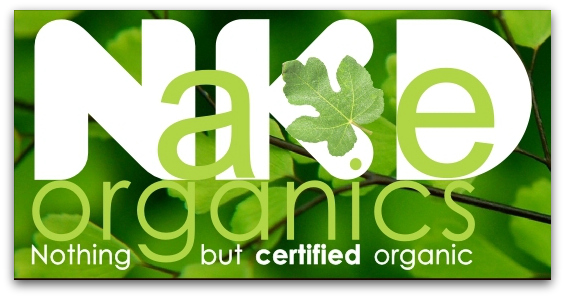|
|
www.moyoway.com |
Buy your Certified Organic |
|
|
CLICK FOR NAKED www.moyoway.com |
Moyo is an African origin word which implies that the
"heart and mind act as one to cultivate the spirit”
Different Makeup Application Methods
Will Give You Different Results
>Home Page >>Best Foundation Makeup >>>Makeup Application
Choosing the best foundation application method also has a lot to do with your lifestyle, for example, are you at school or in an office or outside all day or in a hot environment or travelling; all these factors contribute to what is best for you.
By reading through the 3 most common methods of foundation application, you can begin to draw a picture in your mind of what is best for you.
By Hand
Probably the most common method. The product is generally in a liquid medium with a medium viscosity (thicker than water but thinner than honey) and generally applied from a tube.
Makeup application cover is direct, in other words, the makeup only stays in the area that your hands touch. This makeup application method is useful when you have very specific areas that need to be covered, such as a tattoos or scars.
(We will talk about concealers on another page)
This method has 2 main disadvantages :
Firstly, you need to wash your hands before application, between applications and after application. This is more of a nuisance than a disadvantage but, nevertheless, if there is room for improvement, then why not consider it.
Secondly, your hands need to be as sterile as possible as they are major carriers of bacteria. This point is really important, especially if you have broken skin.
With unbroken skin, bacteria from your hands will generally not enter your body. With broken skin, such as acne, cuts, post surgery, sterile hand hygiene is critical to minimise the chance of infection which will make any broken skin situation, worse.
By Brush
Brush makeup applications are most common with powder based makeup, either loose powder or compressed powder.
Thick brushes (the kabuki brush is typically used) will apply a light makeup veil on your skin giving you a sheer cover to medium makeup cover.
Thinner and narrower brushes are more precise and can be used for eyes, mouth and small, but noticeable skin blemishes.
The great thing about brushes is that they can be kept clean, and more importantly, kept separate from other other bacteria carrying items in your bathroom.
Some tips to keep your brushes clean :
- keep your brushes in a pouch
- do not leave them directly on the bathroom counter
- do not mix them with hair brushes and, especially, your toothbrush
- try not to let your brushes fall to the floor
Toothbrushes, hair brushes, bathroom surfaces and the floor are all bacteria carrying areas that are best to be avoided from your makeup brushes.
This all sounds like a lot to do and to watch out for, not to mention the fact that a good set (quality and range) of makeup brushes are not very cheap either.
By Airbrush
Airbrushes have traditionally been the domain of professional makeup application artists and professional makeup manufacturers.
In the recent years, airbrush compressors and the airbrushes themselves have become significantly smaller and better designed to leave standing on your bathroom counter.
The liquid containers are generally very small, about 30 ml (1 fl oz) and generally anywhere between 5 and 10 drops is enough for a full face makeup application foundation – whether you wish to have full cover or sheer cover.
Each drop is about 0.05 ml to 0.10 ml (the ml will differ slightly when using different liquids) which means that you will get between 30 and 60 full face foundation applications per bottle.
An important consideration of airbrush use is that they are very simple to use after a few minutes of practice.
- Probably the most important characteristic of airbrush application is the fact that it is totally hygienic
Nothing touches your skin except the makeup – and is especially beneficial for any type of broken skin, for example, acne or post surgery.
The airbrush allows you to move close to the skin for a full cover requirement or to move the airbrush further away from your skin allowing you to apply a sheer cover to light cover.
The closer the airbrush is to the skin, the more makeup will be applied to that area.
This flexibility gives you a range of options from a light sheer cover all the way to a full cover that will very effectively conceal all of the following :
- Acne cosmetica
- Age spots
- Albinism and hypopigmentation
- Birthmarks
- Bruises
- Burn scars
- Chloasma
- Dark under-eye circles
- Eczema
- Freckles
- Hemangiomas
- Manifestations of chemotherapy and radiation therapy
- Maturity
- Melasma
- Portwine and nevus birthmarks
- Post dermabrasion and chemical peels
- Post-operative or traumatic bruising or discolouration
- Psoriasis
- Rosacea
- Scarring
- Sensitivity and irritation
- Skin blemishes
- Swelling and inflammation
- Tattoos
- Varicose and spider veins
- Vitiligo
If you can, take the time and opportunity to learn how to use an airbrush. It will be time well spent to get the best that makeup can offer.
Makeup Application (Back to Top)
Makeup Ingredients (Item 1 of 3 - Choosing the Best Foundation Makeup)
Makeup Coverage (Item 2 of 3 - Choosing the Best Foundation Makeup)
Choosing the Best Foundation Makeup








